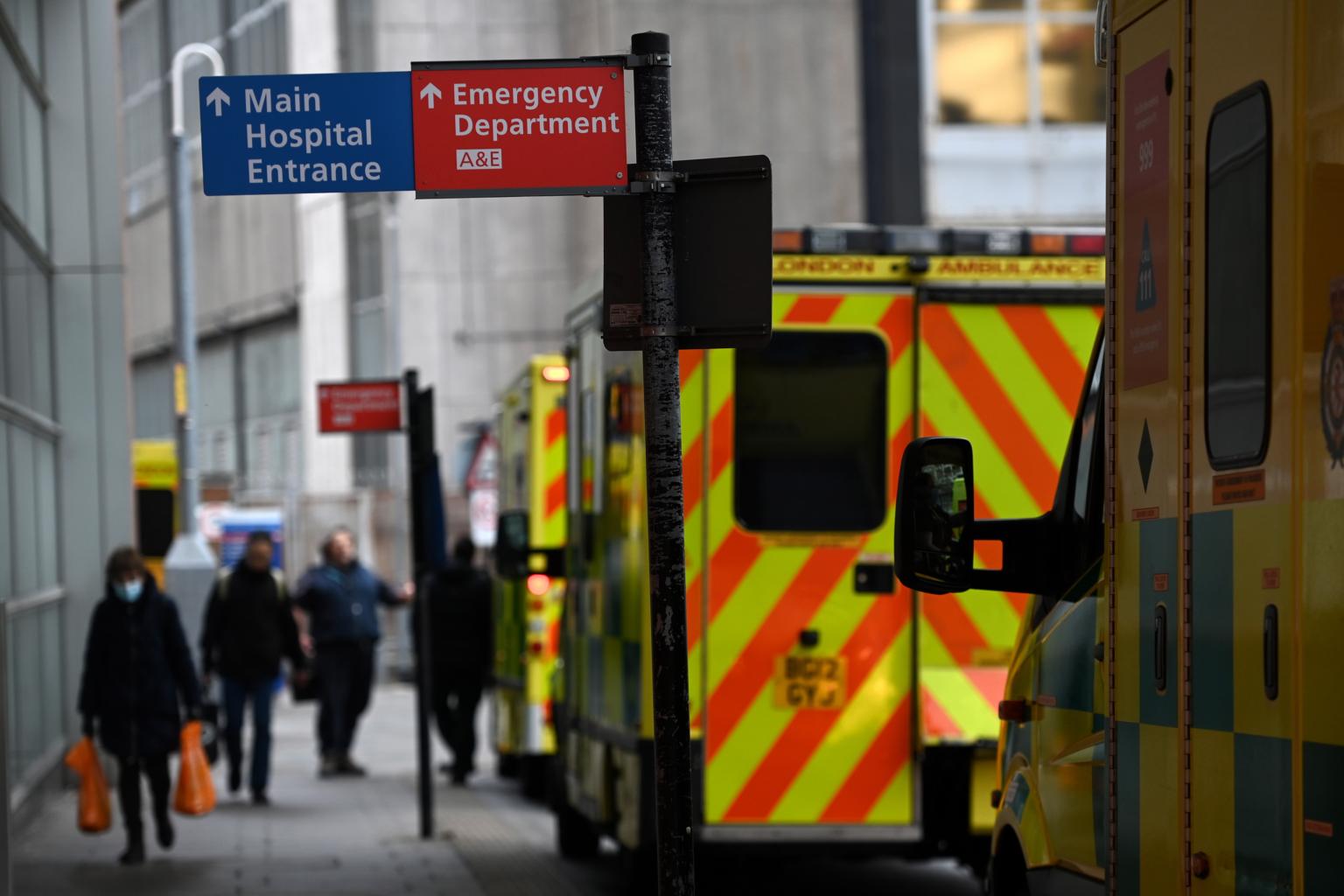UK study on Covid-19 variant Omicron bolsters evidence of lower hospital risk
Sign up now: Get ST's newsletters delivered to your inbox

Omicron patients are 31 per cent to 45 per cent less likely to arrive at emergency departments than those with Delta.
PHOTO: EPA-EFE
LONDON (BLOOMBERG) - Omicron appears to be less severe but more contagious than any other Covid-19 strain to date, a British government study concluded, bolstering research that has shown a lower risk of hospitalisation from the fast-spreading variant.
People infected with Omicron are 50 per cent to 70 per cent less likely than those infected with Delta to be admitted to hospitals, the UK Health Security Agency said on Thursday (Dec 23).
Patients infected with Omicron are also 31 per cent to 45 per cent less likely to arrive at emergency departments than those infected with Delta.
The agency's data came with an important caveat: While a booster shot improves protection against Omicron, its effectiveness starts to wane more rapidly than with Delta and is 15 per cent to 25 per cent lower starting 10 weeks after the third dose.
The agency also cautioned that the new variant is so infectious that it could still produce significant numbers of severe cases.
The findings build on studies released a day earlier with similar assessments of Omicron's lower hospitalisation risk - a rare reassurance for a variant whose transmissibility is fast overtaking Delta's.
Researchers in Scotland found Omicron was associated with a two-third lower risk of hospitalisation compared to the earlier variant, while a South African study pegged the reduction of hospitalisation risk at 80 per cent.
Another study, from an Imperial College London team working with a larger data set, found that people infected with Omicron were almost half as likely to need an overnight hospital stay.
Separate developments related to prevention and treatment added to the moment of optimism in a pandemic that has killed almost 5.4 million people worldwide and sickened millions more. A third dose of AstraZeneca's Covid-19 vaccine significantly boosted neutralising antibodies against Omicron, according to lab studies at the University of Oxford.
A separate study involving a booster made by China's Sinovac Biotech - producer of one of the most world's most widely used Covid-19 vaccines - did not fare as well.
That shot did not produce sufficient levels of neutralising antibodies to protect against Omicron, according to lab test results published on Thursday.
The research suggests that people who have received Sinovac's shot, known as CoronaVac, should seek out a different vaccine for their booster.


